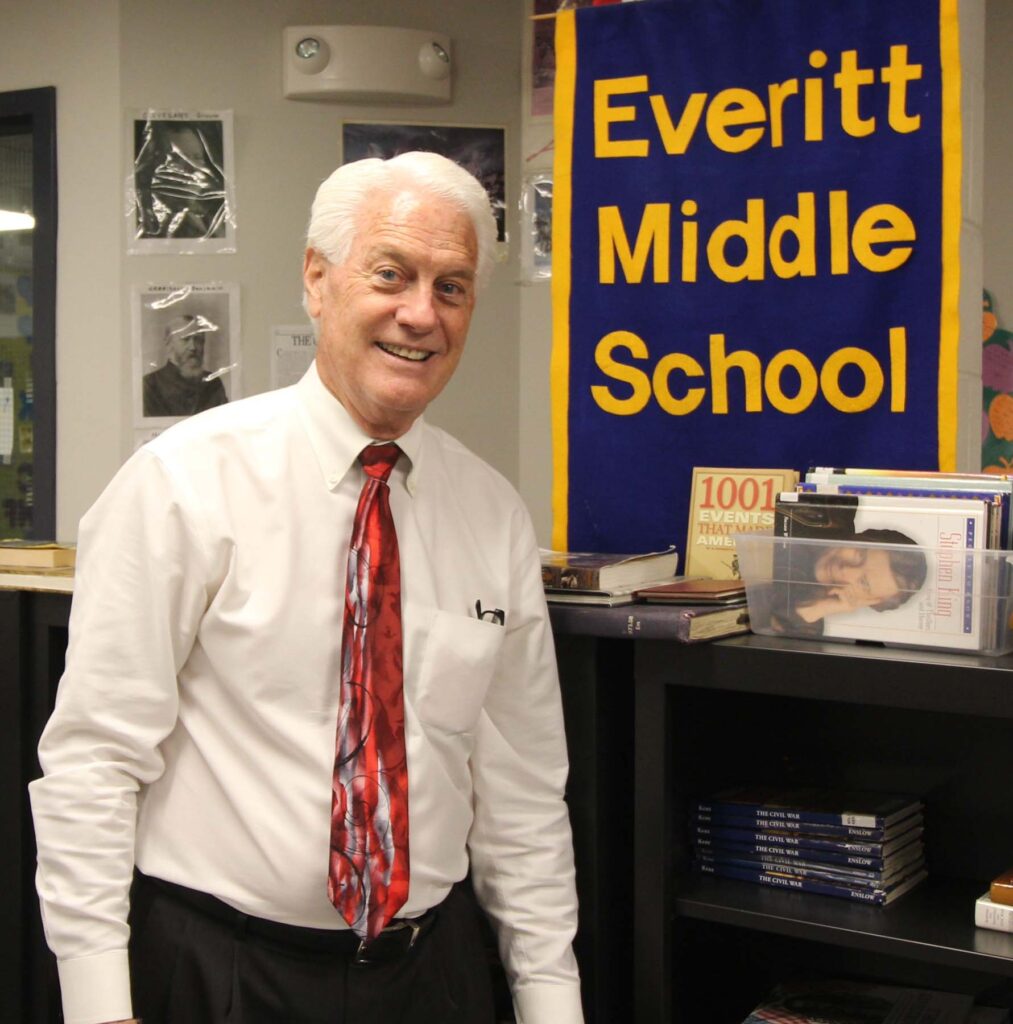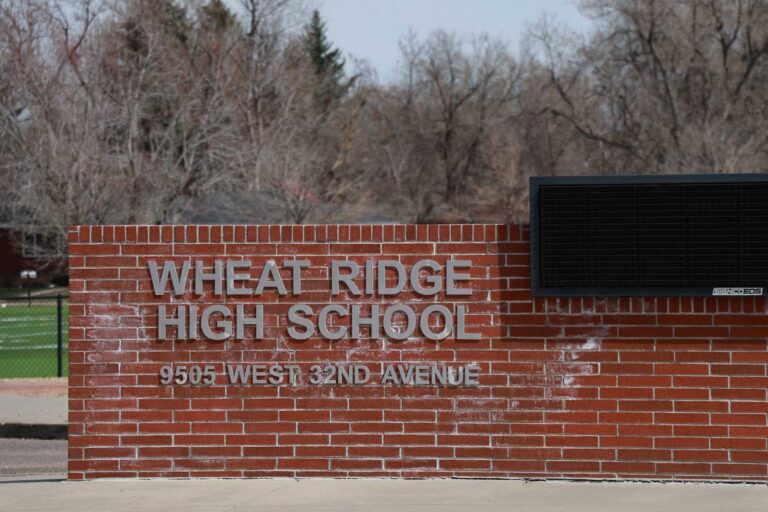“I don’t teach fake anything,” says Bill Gold, social studies teacher at Everitt Middle School.
While at Everitt, he’s taught all eighth-graders U. S. history almost every year. This year, Gold is teaching three eighth-grade classes with 30 students each and, due to declining enrollment in the Everitt school neighborhood, two sixth-grade classes.
Books stuffed into numerous bins line two walls of Gold’s classroom, and the walls are plastered with posters, clippings and articles that represent a U.S. history ranging from the 1770s founding of our country to the end of the Native American conflict in the 1890s. Some of the books support lesson plans, and students may check out other books that cover a vast variety of subjects.
Gold wants his students to leave their eighth-grade year ready for high school, so they learn about what has happened to humans and how they responded.
“Life is cruel to a lot of people, and so was history. I teach the reality of whatever it is,” Gold said during a recent after-school interview in his classroom.
Gold described an example of the type of work his students can do.
“In my eighth-grade honors class, after we’ve gone through most of this material” – he gestured to the walls – “there’s a debate-type program I use that’s at a high school level, but my honors kids are advanced enough to handle it, and sometime in early April they take on topics that deal with what happened in [a given] period of history. One of the topics could be: Should we have had schools like the Carlisle Indian School, or not?”
The kids work in groups of four for two to three weeks, then split into pairs of pro and con, where they create opening arguments on their positions and are taught how to present rebuttals.
“By the last week of school,” Gold said, “they’ve learned to get the confidence to go on stage and debate in front of an audience and be judged by teachers. Even if they don’t carry this experience into a high school program, they have learned to create arguments for debate. Some kids at the beginning are petrified, but by the end of the training and work, they get up there and do it, and that’s a major achievement.”
Gold is a Denver native who grew up in east Denver. He attended St. James grade school, then Regis High School. He graduated from Regis College, now Regis University, in 1974, and began his teaching career at “a little school in north Denver called Guardian Angels.” Nine years later, he got a job at Regis High School, but after 19 years there, he “made the decision to try to turn around eighth-graders, so they can have productive high school years, and stay in school.” He’s in his 16th year at Everitt and believes in the value of public education.
“Even as a longtime private school teacher,” Gold said, “I sent my daughter to Wheat Ridge High School, because I wanted her to be exposed to a more real-world-type society. And I love Everitt because of that. I think Everitt is one of our best schools for diversity – there’s a real world here at Everitt.”
This fall, eighth-graders will be studying Lewis and Clark, who in the early 1800s were dispatched by President Thomas Jefferson to undertake what would amount to an 8,000-mile scientific expedition to explore the Louisiana Territory.
“The kids will map and track it,” Gold said, “then will journal about a part of the trip they were most interested in and pretend they were part of the ‘Corps.’ What I’m trying to do is incorporate writing skills into social studies content.”
When studying about the Civil War, students write two different letters as if they are soldiers writing to their parents – one letter, when they’re first going into battle the next day, and the second after witnessing war’s atrocities.
“I don’t teach fake news, or fake history. When I teach the ‘Trail of Tears,’ kids learn about the role of government” [in relocating the “Five Civilized Tribes” from their homes in the southeastern part of the country to land that would become known as the state of Oklahoma].
“We do slavery units. They are most valuable because kids don’t know the truth about it. Is the government doing the right thing? I’m not going to tell them my opinion. But I will tell them that during this period in history there were people who felt that enslavement of Black people was okay. But there were other people, called abolitionists, in parts of our country who felt it was wrong, and I’m going to teach them about all of that, because they need to know it.
“I’m a compassionate human being, empathetic with the suffering of people in our country’s history and know that our political leaders have not always done things right.
“George Washington had 200 slaves. Is that okay? I didn’t live in that time, so I can’t judge, but he did a lot of great things for our country. I let my kids know to look at the good things people do as well as the not so good, and to judge them on their overall character.
“I hope, when parents read this article, that they think I was a man who cared about their kids and wanted to see them improve in their educational skills and have a love for reading. Reading is the key to success.”






